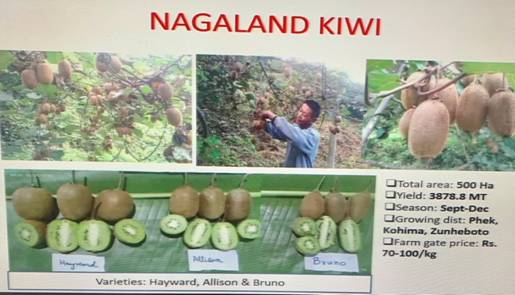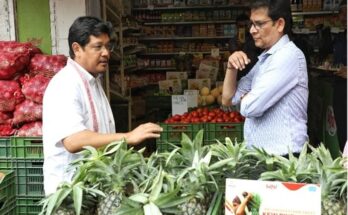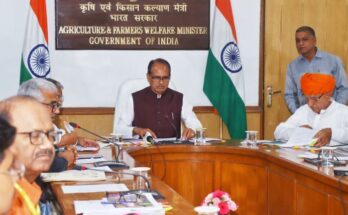Ministry of Agriculture and Farmers’ Welfare along with Central Institute of Horticulture, Nagaland Wednesday organised a virtual meeting on ‘Value Chain Creation for Kiwi fruit – Farm to Fork’ keeping in mind the popularity of the fruit due to its tremendous commercial potential. The meeting was chaired by the Union Minister of Agriculture and Farmers’ Welfare, Narendra Singh Tomar in the presence of Minister of State for Agriculture, Parshottam Rupala; Secretary, Department of Agriculture and Farmers Welfare and other officials of the ministry along with Nagaland government.
Addressing the gathering, Tomar said that the entire North East due to difficult terrain is lagging behind and all ministries including Agriculture ministry are working towards ensuring a progressive North East. He said that this lag needs to be removed and can only be done through a comprehensive vision along with stable policy planning and balanced growth across the region.
Tomar said that the Himalayan Sub – Temperature climate is suitable for Kiwi production and there is a need to introduce high yielding cultivars. With extensive research and development support, the commercial cultivation of Kiwi fruit has been extended from the Sub – Himalayan Regions of India to the mid hills of Himachal Pradesh, Sikkim, Meghalaya, Arunachal Pradesh, Nagaland and Nilgiri Hills. Presently, India is producing 13,000 MT of Kiwi in an area of about 4,000 Ha in Arunachal Pradesh, Nagaland, Mizoram and Himachal Pradesh.
India currently imports 4,000 tonnes of Kiwis from New Zealand, Italy and Chile. Tomar said that the Ministry of Agriculture was trying to provide handholding support to Kiwi farmers across the country. This is also in line with the call of ‘Vocal for Local’ which would help in reducing dependence on imports and building a sustainable market for locally produced Kiwi fruit variants.
Tomar said also elaborated on the problems faced by the farmers in the North East region namely lack of good planting material, productivity issues, lack of packaging facilities and marketing networks for farmers. Considering the problems faced, he said that Centre was working hand in hand with state governments and especially the Central Institute of Horticulture, Nagaland and the Department of Agriculture and Farmers Welfare had taken key steps to ensure proper training and capacity building of farmers in production as well as packaging of kiwi products. The government was also ensuring that farmers are connected to the market so that they can reap a fair price for their produce. The institute in Nagaland has also conducted training and exposure visit of farmers from Phek district of Nagaland for helping them understand how to reap good returns through Kiwi production. Tomar added that persistent efforts should be made by all to ensure Nagaland could emerge as the ‘Kiwi State’ of India.




